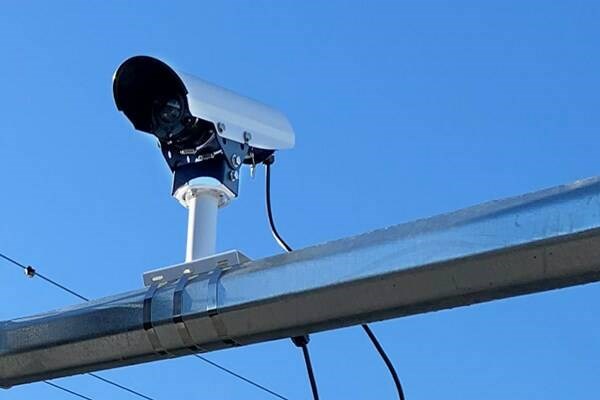RCMP has requested footage from the city’s traffic cameras more than one hundred times already this year.
The City of Richmond installed 110 closed-circuit cameras last year at intersections throughout the city.
Currently, the traffic cameras capture low-resolution, as mandated by the privacy commissioner, and, when they were set up, city staff said they could be used for analyzing traffic data.
Richmond city council is planning to challenge the privacy commissioner’s ruling in an attempt to have high-resolution footage that could help RCMP investigate crimes.
The community safety committee approved a motion – which was opposed by Couns. Michael Wolfe and Laura Gillanders – to ask city staff to look into whether the cameras could be amplified to be high-resolution.
But it seems the RCMP is already using the low-resolution footage for investigations, despite the fact vehicle occupants and licence plates can’t be identified.
The city received 142 requests from the Richmond RCMP last year for camera footage. This year, so far, they’ve received 107 requests.
The RCMP say they request footage to “assist with active investigations.”
“The nature of these investigations varies but we can confirm that evidence from these cameras have assisted in investigations,” explained RCMP media spokesperson Cpl. Adriana O’Malley.
She added video surveillance is one tool used by police to investigate and collect evidence.
“Video surveillance can assist investigators in a myriad of ways from missing persons to motor vehicle incidents to criminal investigations such as robberies, break & enters and assaults,” she said.
City Coun. Kash Heed was the instigator of the motion on Tuesday.
He said the current footage is “useless” for police investigations.
Heed’s motion challenges the privacy commissioner’s ruling and asks city staff to look into elevating the resolution in the captured video “for the purposes of criminal investigation and prosecution.”
Richmond Mayor Malcolm Brodie, who was at the committee meeting for the item, said he fully supported this motion.
Brodie said, based on a previous discussion with Solicitor-General Mike Farnworth, he felt Farnworth would be on board to use the cameras to investigate crime, but “the person standing in the way was the privacy commissioner.”
O’Malley said, when asked whether high-resolution footage would help, there are many factors to consider “when assessing or determining the probative value of the video.” Some of these factors are whether it’s taken at night or during the day, the positioning of the camera and weather conditions.
“However, generally speaking higher resolution can enhance the quality of the video, but as stated there are many other factors to consider,” she added.



